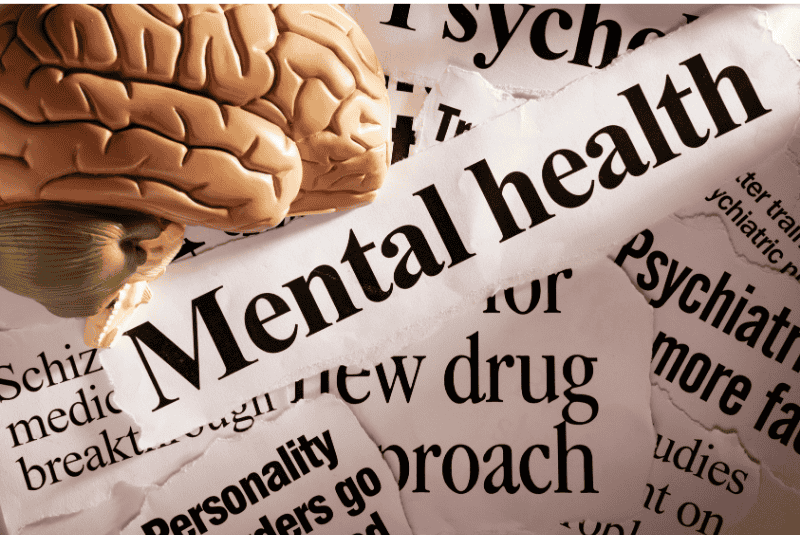For decades, mental health was whispered about — if it was discussed at all. Many saw it as a personal weakness or a private burden to hide. Fast forward to 2025, and the conversation has changed dramatically. Mental health is now at the forefront of public dialogue, with new tools, greater awareness, and more open support than ever before.
But while we’ve come a long way, the journey isn’t over. The challenge today isn’t just about acknowledging mental health issues — it’s about breaking the remaining stigmas and creating stronger, more accessible support systems for everyone.
Why Mental Health Matters More Than Ever
The 2020s have been a whirlwind — pandemic fallout, economic uncertainty, social unrest, climate concerns, and the relentless pressure of always being “online.” As a result, mental health has shifted from a personal wellness topic to a public health priority.
Anxiety, depression, burnout, and loneliness are now common experiences across all age groups. The good news? In 2025, people are talking about it more openly — and that openness is driving innovation in treatment and prevention.
How Stigma Is Evolving
The stigma surrounding mental health has decreased significantly, but it hasn’t disappeared. In many workplaces, social circles, and cultures, outdated beliefs still persist. Some of the most common myths we’re still dismantling in 2025 include:
- “Strong people don’t need therapy.”
Reality: Seeking help is a sign of strength, not weakness. - “Mental illness is rare.”
Reality: One in four people experience a mental health challenge each year. - “You just need to think positive.”
Reality: Mental health issues are complex and often require professional care.
Breaking these myths means continued education, honest conversation, and representation in media, workplaces, and schools.
Technology’s Role in Mental Health Support
In 2025, technology has become one of the biggest allies in the fight for better mental health. Here’s how:
1. AI-Powered Therapy
AI chatbots and virtual therapists are now capable of providing real-time emotional support, using natural language processing to offer guidance and coping techniques. While not a replacement for human therapists, they make mental health resources available 24/7.
2. Wearable Mood Trackers
Smartwatches and biometric devices now monitor stress levels, sleep quality, and mood fluctuations, sending alerts when intervention might be needed.
3. Teletherapy Expansion
Virtual therapy sessions have become the norm, making it easier for people to connect with licensed professionals regardless of location or mobility.
4. VR Exposure Therapy
Virtual reality is being used for controlled exposure therapy, helping people safely face phobias, social anxiety, and PTSD triggers in a realistic but secure environment.
Community-Based Mental Health Support
Even with advanced tech, nothing replaces human connection. In 2025, there’s a growing emphasis on community-driven support:
- Peer Support Groups: Both online and offline, peer-led spaces allow people to share experiences without judgment.
- Workplace Wellness Programs: Employers are integrating mental health days, mindfulness sessions, and open dialogue into company culture.
- School Mental Health Education: Mental well-being is now taught alongside physical health in many educational systems.
These initiatives help normalize the conversation and ensure help is not just available — but accessible.
The Importance of Early Intervention
One of the biggest changes in 2025 is the focus on prevention. Mental health is being treated more like physical health — something to be maintained regularly rather than only addressed in crisis.
Early intervention means:
- Regular mental health check-ins.
- Stress management programs.
- Encouraging children and teens to talk about their feelings without fear of dismissal.
The earlier support is provided, the greater the chances of long-term resilience and stability.
How to Be Part of the Change
Breaking stigma and building support isn’t just the job of therapists and policymakers — it’s something we can all contribute to.
- Use Respectful Language – Avoid labels or jokes that trivialize mental illness.
- Be a Safe Space – Let friends and family know they can talk to you without fear of judgment.
- Educate Yourself – Learn about different mental health conditions and treatments.
- Encourage Help-Seeking – Normalize therapy and professional support.
Looking Ahead: Mental Health in the Next Decade
If the past few years have taught us anything, it’s that mental health is as crucial as physical health. In the next decade, we can expect even more integration between technology, healthcare, and community-based support. AI will get smarter, VR will get more realistic, and global conversations about mental wellness will become louder.
The ultimate goal? A world where talking about seeing a therapist is as casual as mentioning a dentist appointment, and where everyone has access to the help they need.
Final Thoughts
Mental health in 2025 is no longer a hidden topic — it’s a growing movement. Through education, innovation, and compassion, we’re breaking down barriers and building stronger support systems for all. There’s still work to do, but the progress is undeniable.

